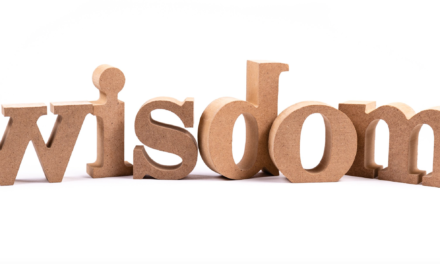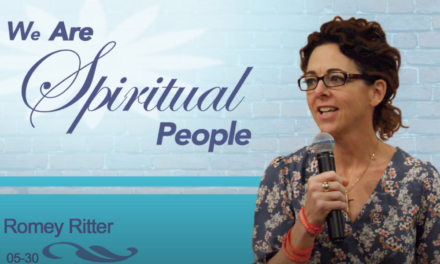Character disturbance is quite the phenomenon of our age. Sadly, even in the church.
We want to believe the best in people. We want to. We are Christians. We are supposed to love and forgive, just as Jesus did… Right!
So when an emotionally abusive christian comes into our world and we start to notice things aren’t quite right, instead of questioning their disturbed character, we question and doubt ourselves. We guilt trip ourselves because we think we have wrongly judged them and Jesus wouldn’t do that... Actually, He would and He did!
Instead of calling a spade a spade, i.e…
- this person is a manipulator
- this person is completely lacking integrity
- this person is emotionally abusive
- this person is controlling
- this person is deceptively hurtful to people
- this person hides their lack of character in altruism–it’s all for the greater good
- this person is lying
- this person full of self-seeking agenda
- this person uses others for their own gain…
We find reason to excuse their hateful actions, often looking into our own heart, digging deep, to find why we think or feel the way we do about that person; wanting to quiet our own suspicions.
A character disturbed person loves this. They take queues from this and play to our sympathies and weaknesses, furthering, if they can, their control and dominance. They can make it look like they are freely giving us their love, loyalty, and friendship but it is always to get something in return. They always want a return. They never give freely. A character disturbed person wants other people to feel as if they owe them something. They will constantly remind people, “Don’t forget what I’ve done for you. Don’t forget how I’ve helped you…”
What they seek is power, personal or financial gain, to be seen as important, superior, to dominate others, to gain for themselves opportunity…
A character disturbed person stops at nothing to get what they want. They set themselves up to be the go-to spiritual advisor for people, usurping and assuming spiritual leadership and authority. Why?… because often, they can. Sometimes there is a vacuum of good-Godly leadership, a ready-made hole waiting for someone anyone to step into. Sometimes christians lack solid direction for themselves, so when a dominant person comes along they quickly follow. Other times christians are naive and vulnerable, wanting to believe the best in people, yet lacking wisdom and spiritual discernment to know better, leaving themselves and our churches open to the whims of these wolves.
Character disturbed people are wolves in sheep’s clothing, masterfully good at hiding their razor-sharp teeth.
Character disturbed people take advantage of, or prey on, naive and vulnerable people. They are masters of manipulation and people fall into their trap every time. Countless among us have. They may look and sound beautiful to the eyes and ears. They may be brilliant at seducing and winning people’s attentions. Their speech may be full of eloquent bible, further convincing us of their altruism, while simultaneously reinforcing the self-doubt we have of our suspicions of their intentions.
I am oversimplifying the difference between good and evil but for the sake of keeping this short, it’s intention. If we are doubting a person intention, listen to that doubt and sort through it, accurately. A disconnect between what a person says and does should be obvious enough for us to connect the dots.
If after spending time with a person we have unsettled, conflicted, confused, or depressed thoughts, feelings of guilt, or a heaviness, these should be crystal clear signs, this person is an abusive manipulator. They are character disturbed.
Jesus called a spade a spade. He called people out. He recognized wrong agenda’s. He knew the intentions of people’s hearts. And He spoke directly to it. He would not let these people get close to Him. He would not let these people have their way. This is not a lack of love or forgiveness. This is healthy boundaries. This is being wise in relationships. Jesus modeled it.
We benefit greatly when we use wisdom in relationships and have healthy boundaries. We only have healthy boundaries when we are aware of the fact there are people we need to keep at a safe distance. There are people we need to say goodbye to. And that is more than just OK, it’s healthily guarding ourselves, our families, and our churches. It sets us up to live long, happy, content lives, enabling us to fulfill what God has placed on our life.





